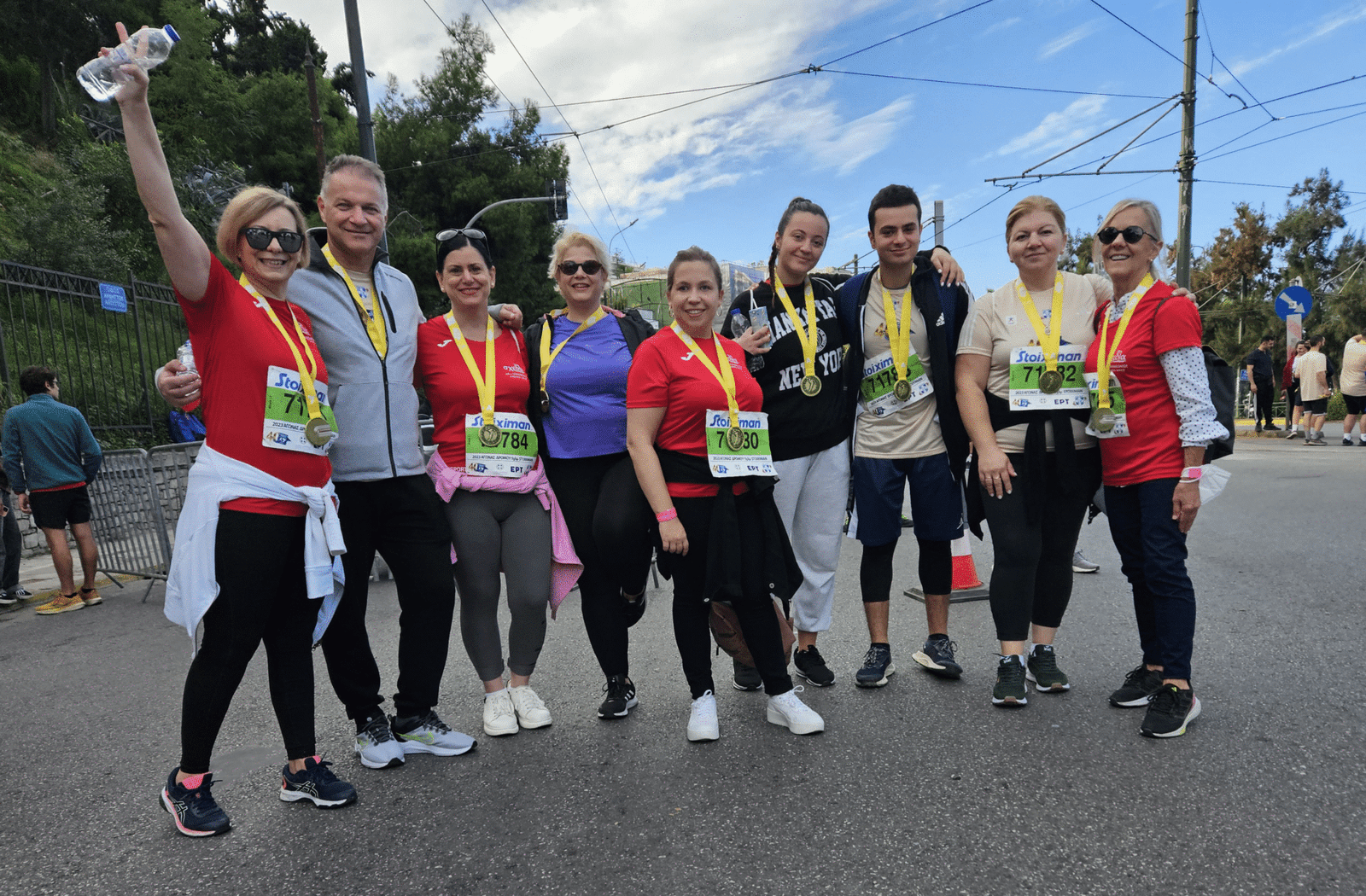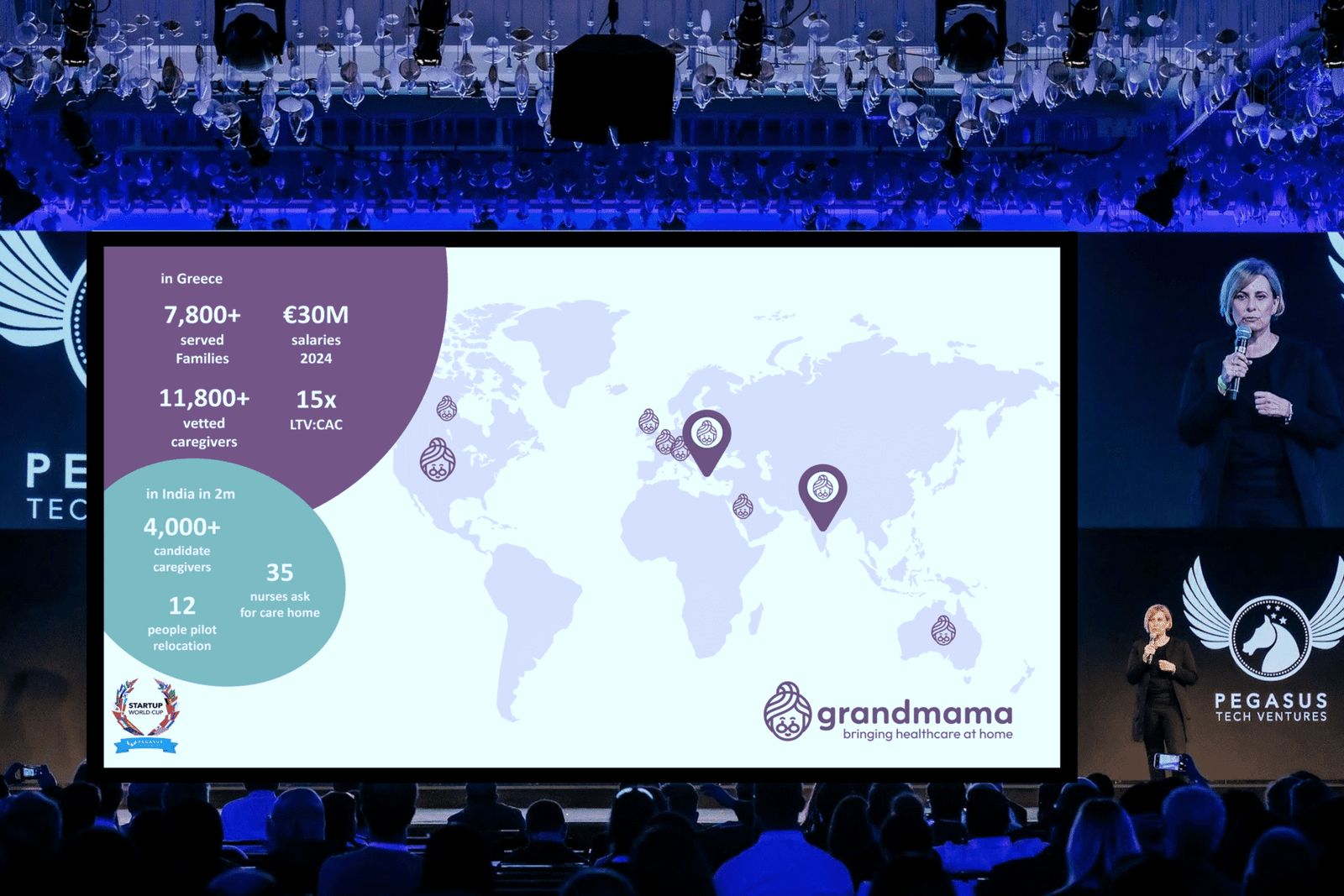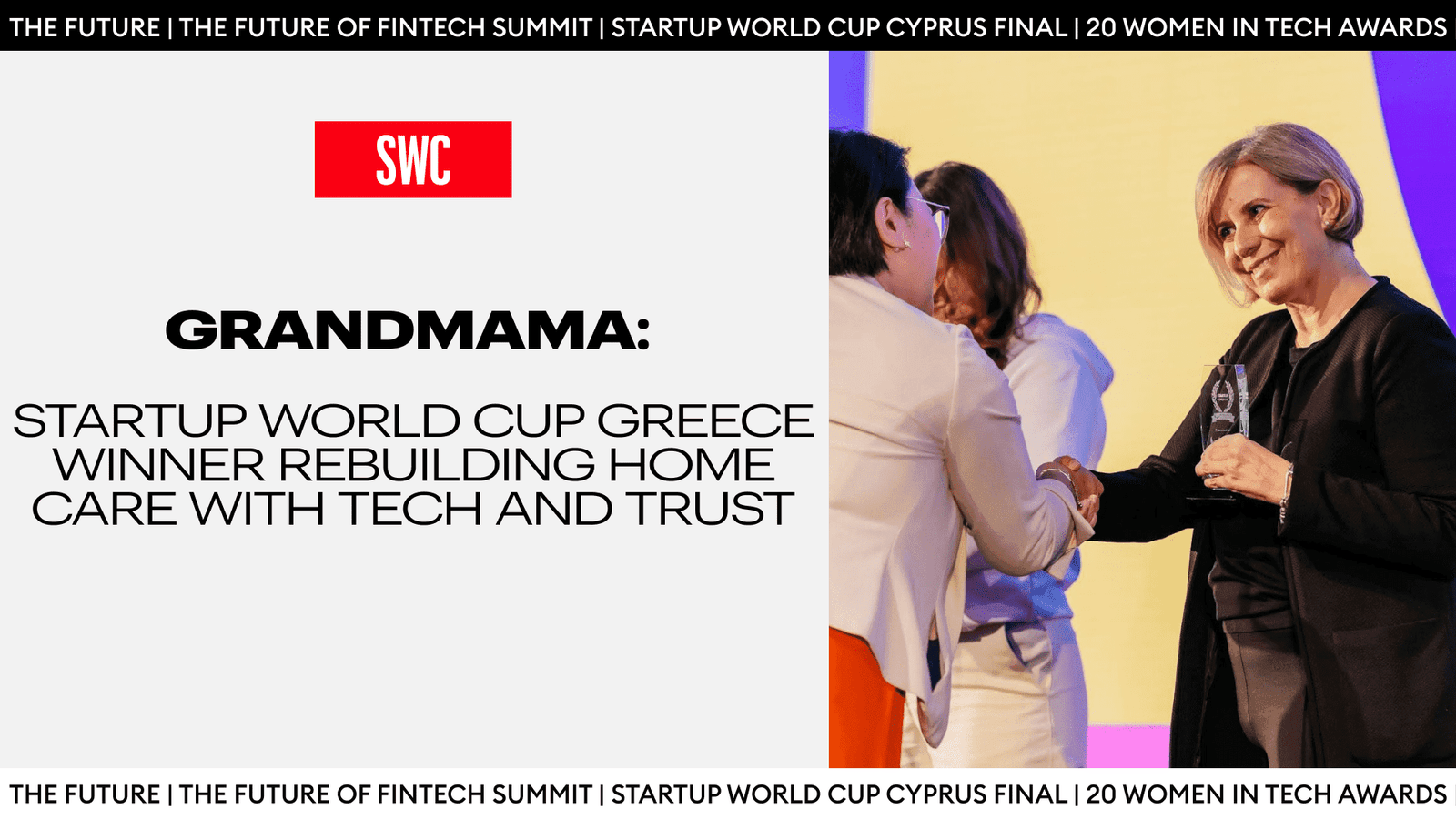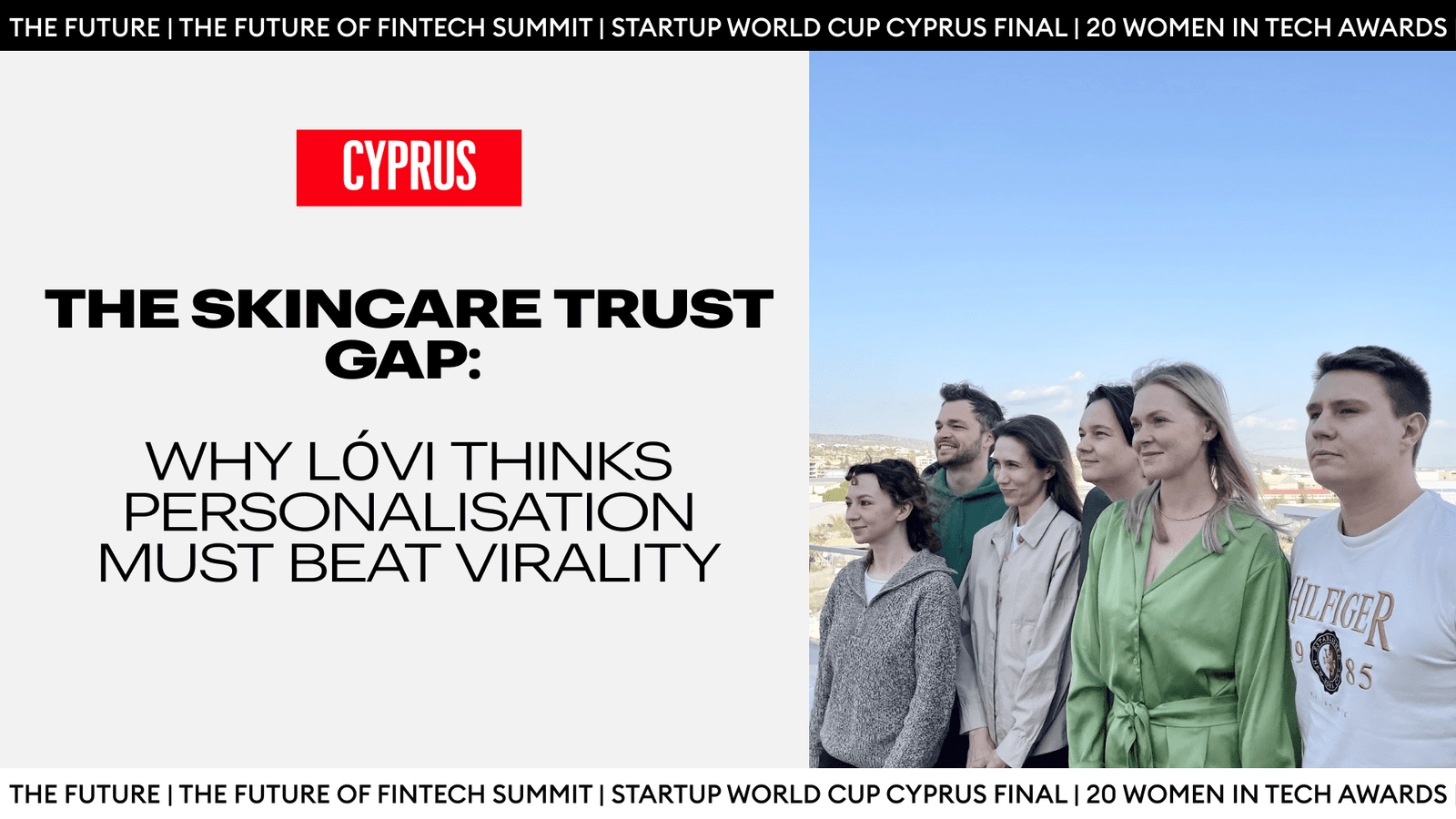When Vicky Klimi’s grandmother broke her hip, her family made what they thought was the safest choice: bring her back to her home and hire a caregiver through an agency. But on the last day of her life, they discovered she had been abused by the very person hired to care for her well-being. The pain of this news is shared by thousands of families worldwide. Globally, 15.7% of older adults in community settings, including private homes, experience abuse each year by their caregivers (WHO, 2024).
That moment became the seed of Grandmama, a Greek-born platform now redefining home care globally. After being selected to represent Greece at the Startup World Cup Grand Finale in San Francisco on October 17, 2025, Grandmama joined an elite cohort of startups competing for a $1 million investment prize, a rare opportunity for a care-tech venture from Southern Europe.
Follow THE FUTURE on LinkedIn, Facebook, Instagram, X and Telegram

The problem Grandmama tackles is universal. Families worldwide face a broken home care system. They pay 20–50% commission to traditional agencies, yet still lack reliable ways to verify caregiver backgrounds. Meanwhile, caregivers, often women, migrants, or refugees, at times find themselves in exploitative conditions, earning below living wages with little training or legal protection (ILO, 2023).
Grandmama flips this model. It connects families directly with vetted, trained professionals, cutting agency costs and restoring transparency to the process, and, on the other side, it empowers caregivers as independent contractors with fair pay, professional training, and community support. Its CareApp uses natural language processing to match families and caregivers not just by skills, but by emotional compatibility. The app also provides the option for consent-based computer vision to detect falls, abuse, or routine deviations in real time.
Today, the platform supports over 7,500 families and 11,500 caregivers in Greece, with live operations in India and active plans for U.S. market entry. For co-founder and CEO, Vicky Klimi, this isn’t just a business but proof that care can be both human and efficient, fair for families, and empowering for those who give it.
In this interview with The Future Media, Vicky Klimi shares how personal loss led her to rebuild home care from the ground up, and why the future of ageing must be built on transparency, technology, and trust.
How did you come into the space of home care?
I came into the home care space through a very personal experience. It all started with my grandmother, Stavroula. When I was still a child, she fell and broke her hip. After surgery, my parents agreed the safest option would be to care for her at our home. But my grandmother was not happy about this decision. She kept saying she wanted to return to her home, to the place where she got married, raised her children, and spent most of her life.
My parents eventually gave in and called a home care agency to find her a caregiver. Unfortunately, we weren’t able to meet the caregiver beforehand. On the last day of my grandmother’s life, we discovered she had been abused by that caregiver.
That moment changed everything for me. It made me realize how broken the traditional home care system is. After some time, I knew I had to do something, so I moved into the home care industry, which eventually led to grandmama.gr.
What problem were you seeing in the home care market for families and caregivers?
What I saw was a broken system for both families of elders and caregivers. Families go through a stressful and expensive process trying to find someone they can trust. They pay high agency commissions, have no control over the process, and constantly worry about the safety and well-being of their loved ones.
On the other hand, caregivers, mostly women, immigrants, or refugees, are underpaid, unsupported, and feel invisible. They often work without training or legal protection and are given very little recognition for the care and love they provide.
Both sides are struggling. That’s exactly the gap we’re closing with Grandmama by building a transparent, trusted, and empowering ecosystem for both.
What led you from merely observing the problem to deciding to build a solution?
At first, I was just heartbroken by what happened to my grandmother. But as time passed, I realized that what we went through wasn’t just bad luck. It was a symptom of a much larger problem.
I started talking to other families and caregivers, and I kept hearing the same stories: families who didn’t trust agencies, caregivers who felt exploited, and an entire system that lacked transparency and compassion. That’s when I decided that someone had to change it and that someone could be me.

With my background in healthcare management, I knew how to build processes that ensure safety, quality, and accountability. Grandmama is not another agency, but a platform that connects families directly with vetted, trained caregivers, making home care accessible, affordable, and humane.
What is the main mission of Grandmama?
Our mission is to change home care by connecting families with trusted, compassionate, and well-trained caregivers, making quality care accessible, affordable, and dignified for all. We are supporting both sides, the caregivers and the families, throughout their home care journey, and we enable them with the use of technology
We aim to rebuild trust in home care by ensuring transparency, safety, and respect at every step of the process while reducing the cost. At the same time, we empower caregivers to be independent and work as contractors and receive fair salaries, professional training, and community support.
Where does the name come from?
The name Grandmama comes from the idea that every person we care for could be someone’s grandmother, grandfather, mother, or father.
It’s a name that carries love, respect, and familiarity. It is a reminder that behind every request for home care, there’s a family, memories, and someone deeply loved. We wanted a name that reflects our belief that care should feel personal, human, and full of dignity, just like the care we would want for our own family.
But also, it reminds me of my dear grandmother every day, who inspired me and still inspires me to move on.
How does the CareApp match families and caregivers?
CareMatch is one of the core modules of the CareApp, our smart matching system that uses natural language to understand each family’s unique situation.
Instead of filling out forms, families simply describe in their own words what kind of help they need, for example, support for an elderly parent with dementia, post-surgery care, or daily companionship.
Then the system uses natural language processing to interpret this description, identify key needs and preferences, and match the family with the most compatible caregivers based on skills, experience, personality, and location. CareMatch doesn’t just look at qualifications; it understands context, emotion, and compatibility, helping families find the right person not only for the job, but for the human connection that care requires
How do your safety features, such as fall, abuse, and deviation detection, work day to day?
Our safety features, including fall, abuse, and deviation detection, are part of the next stage of the CareApp, powered by computer vision technology.
With the family’s consent, cameras in the key areas of the home monitor movement patterns and behavior, without compromising privacy. The system is trained to recognize abnormal events, such as a fall, sudden aggression, or unusual inactivity, and immediately alert family members or emergency contacts through the CareApp. Beyond emergencies, the system also learns each person’s daily routines and detects deviations that might signal a health or safety concern, such as missed meals or irregular mobility.
How does your model address high agency fees and improve transparency for both sides?
Traditional home care agencies globally charge high commissions, often 20 to 50%, while families still have little control over the process. Caregivers, meanwhile, receive only a small fraction of what families pay. Grandmama removes the middle layer by offering a transparent, digital platform where families and caregivers connect directly.
At the same time, caregivers gain their independence as self-employed contractors, choosing their clients, setting their availability, and building trusted long-term relationships, while families enjoy lower costs and higher quality care. All profiles, rates, reviews, and credentials are visible upfront, so families know exactly who they are hiring, and caregivers know exactly what they will earn.
Grandmama reduces costs, increases caregiver income, and restores trust, creating a fair, empowering, and sustainable home care ecosystem.
Why did you choose to participate in Startup World Cup Greece this year, and what did you take away from the finals experience?
We decided to participate in Startup World Cup Greece because we believe competitions like this are not just about pitching; they’re about connecting with people who share a vision for change. For me, it was an opportunity to share Grandmama’s story, how technology and empathy can coexist to transform home care. We were selected by the judges to represent Greece at the Grand Finale in San Francisco, which provided the opportunity to see how our mission resonates not only locally but globally.

Reaching the finals among 98 startups from around the world and pitching at this multinational audience was a proud moment for our team. Beyond this, what I truly took away was the power of community, feedback, and global perspective. I realized that the challenges we’re solving at Grandmama, aging populations, caregiver shortages, and lack of trust in home care, are universal. It motivated me even more to scale our impact internationally.
We are grateful to the organizers and partners of the Startup World Cup Greece Regional Finals: Pegasus Tech Ventures, Aivitam Ventures, Panis Media, SuiHub, Areti Charidemou, and Startup Greece, for their exceptional work in bringing together Greece’s innovation community and giving startups like Grandmama the opportunity to shine on the global stage. Competing alongside some of the most inspiring and visionary startups in Greece was an incredible experience that showcased the strength, creativity, and global potential of our country’s entrepreneurial ecosystem.
Also, I would like to personally thank Natassa, who encouraged us to participate!
What does success look like for Grandmama over the next two years?
Success for Grandmama over the next two years means scaling both our impact and our technology. We started from Greece, and now we are expanding to India with our partners. But the US is calling us, and we say, challenge accepted! We aim to support over 100,000 families in finding trusted caregivers and to empower tens of thousands of women, immigrants, and refugees with dignified, well-paid work opportunities.
Beyond numbers, success for us means that families feel peace of mind and caregivers feel proud of the work they do. We want to see caregiving being selected as a career path, not just as a means of survival, with the knowledge that Grandmama has changed the space for them to thrive.














